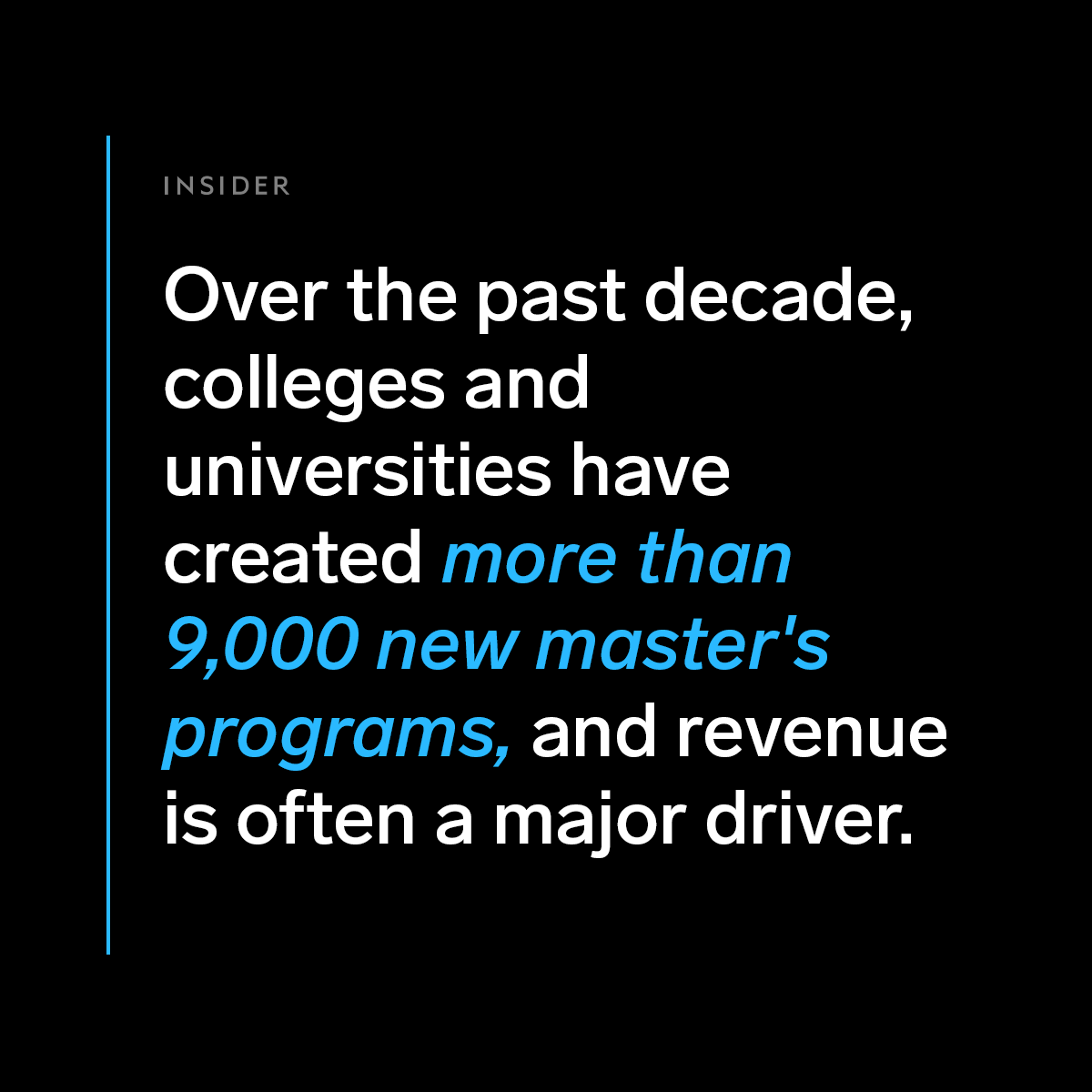🎓 A master’s degree is the new bachelor’s — or is it?
Research shows that many master’s degrees fail to deliver on the promise of better employment while leaving their over-educated recipients saddled with crippling debt. @James_S_Murphy explains. 👇
businessinsider.com/masters-degree…
Research shows that many master’s degrees fail to deliver on the promise of better employment while leaving their over-educated recipients saddled with crippling debt. @James_S_Murphy explains. 👇
businessinsider.com/masters-degree…
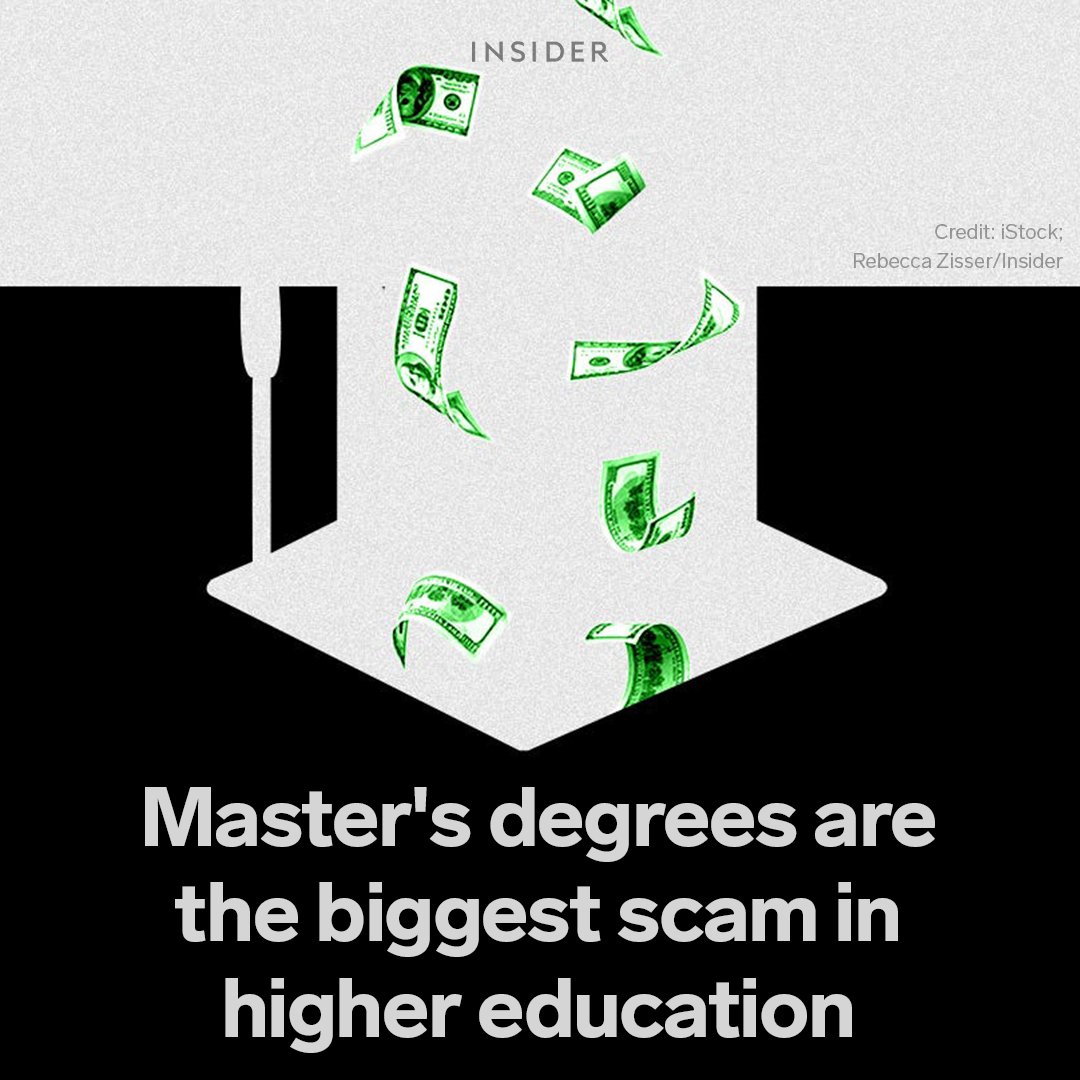
Over the past two decades, the number of master’s degrees awarded almost doubled.
And as the number of master’s students has soared, so has their share of total student loan debt.
businessinsider.com/masters-degree…

And as the number of master’s students has soared, so has their share of total student loan debt.
businessinsider.com/masters-degree…
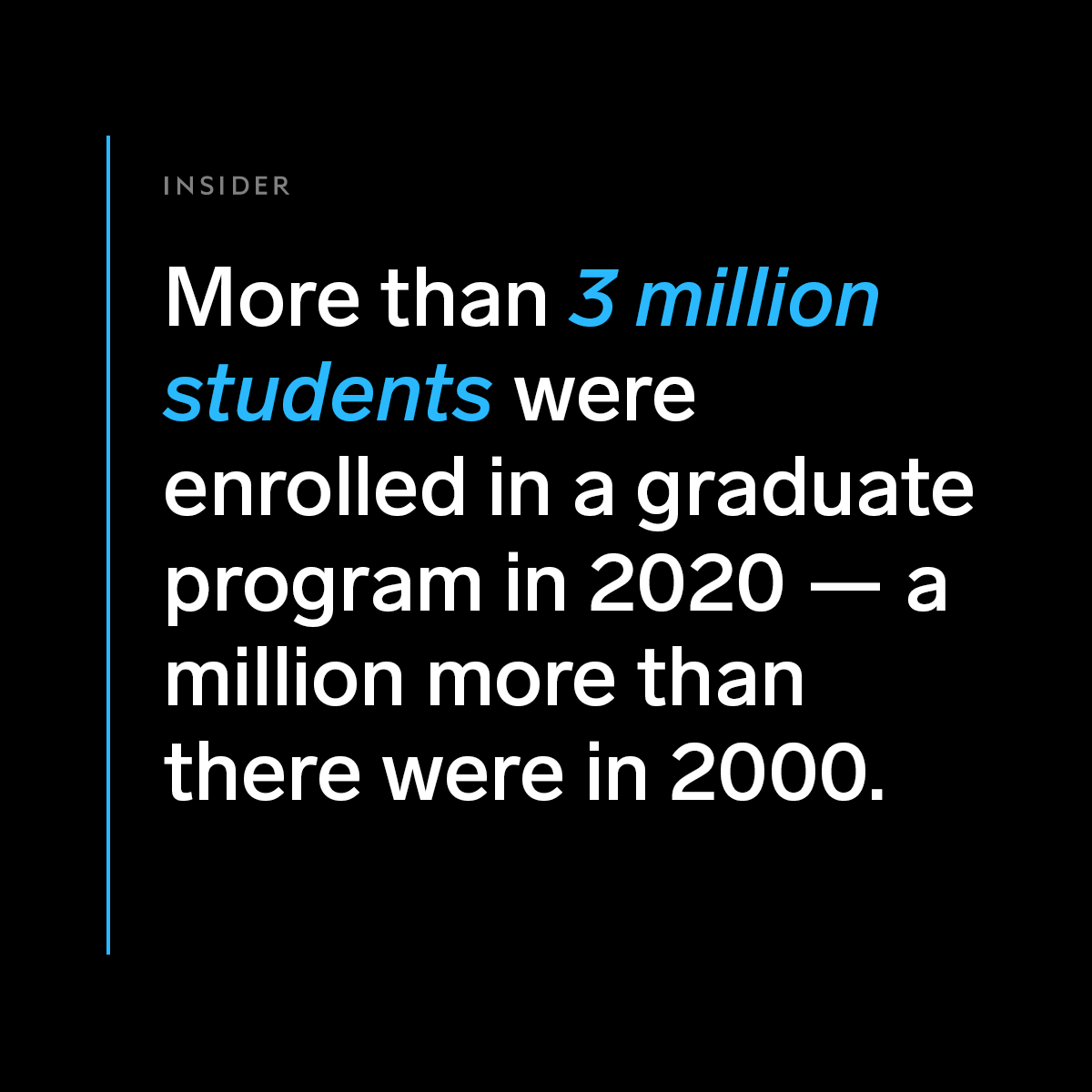
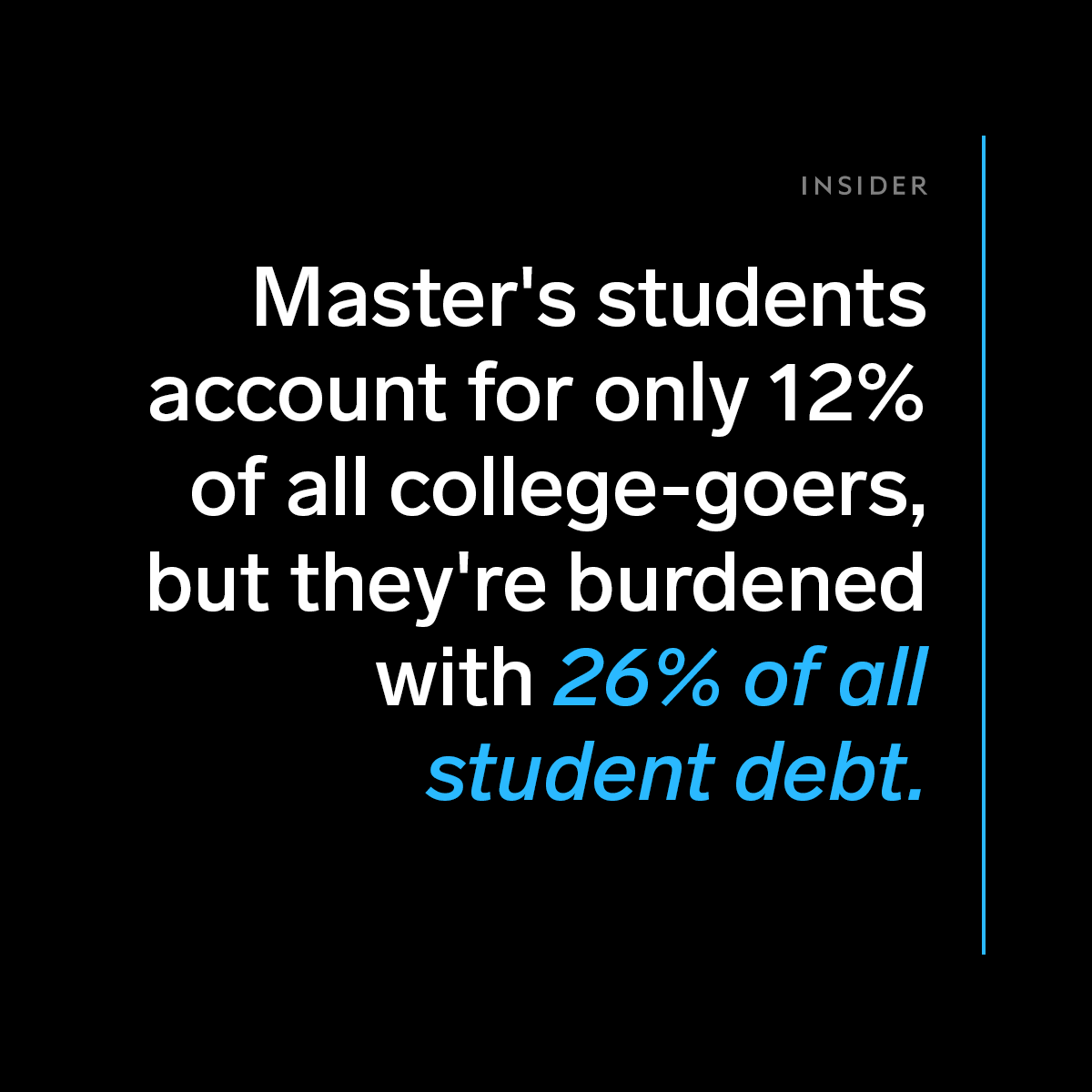
This towering debt, combined with the often modest earnings potential that many advanced degrees deliver, means that many master’s programs make no financial sense whatsoever.
So why do so many people keep wasting their money on these pieces of paper?
businessinsider.com/masters-degree…
So why do so many people keep wasting their money on these pieces of paper?
businessinsider.com/masters-degree…
A look at the earnings data makes it easy to see why so many millennials and Gen Zers are drawn to grad school.
businessinsider.com/masters-degree…
businessinsider.com/masters-degree…
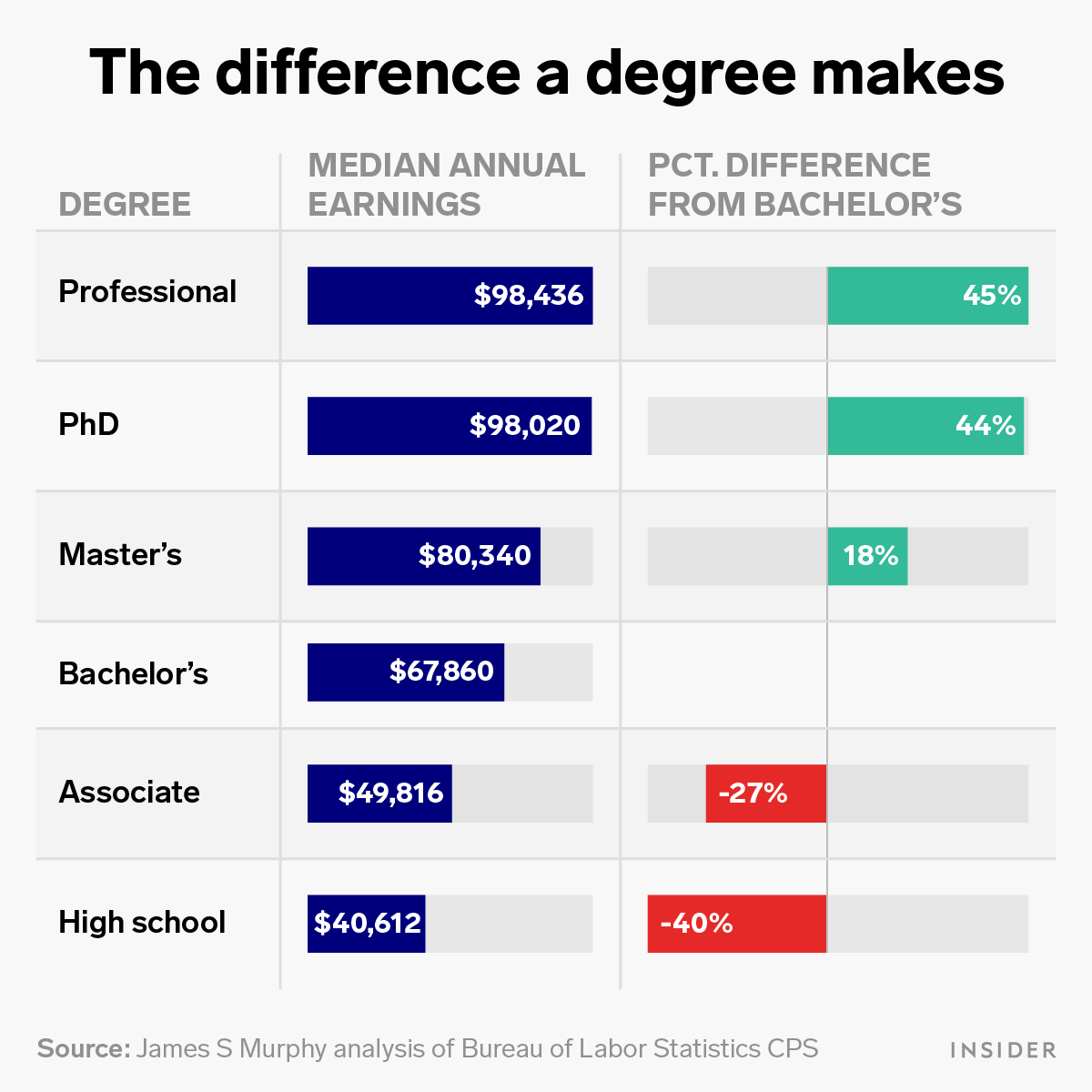
The problem is that most grad students aren’t getting MDs, JDs, or Ph.D.s. They’re getting master’s degrees.
Sure, people with a master’s earn more, on average, than those with just a bachelor’s degree — but only by 18%.
businessinsider.com/masters-degree…
Sure, people with a master’s earn more, on average, than those with just a bachelor’s degree — but only by 18%.
businessinsider.com/masters-degree…
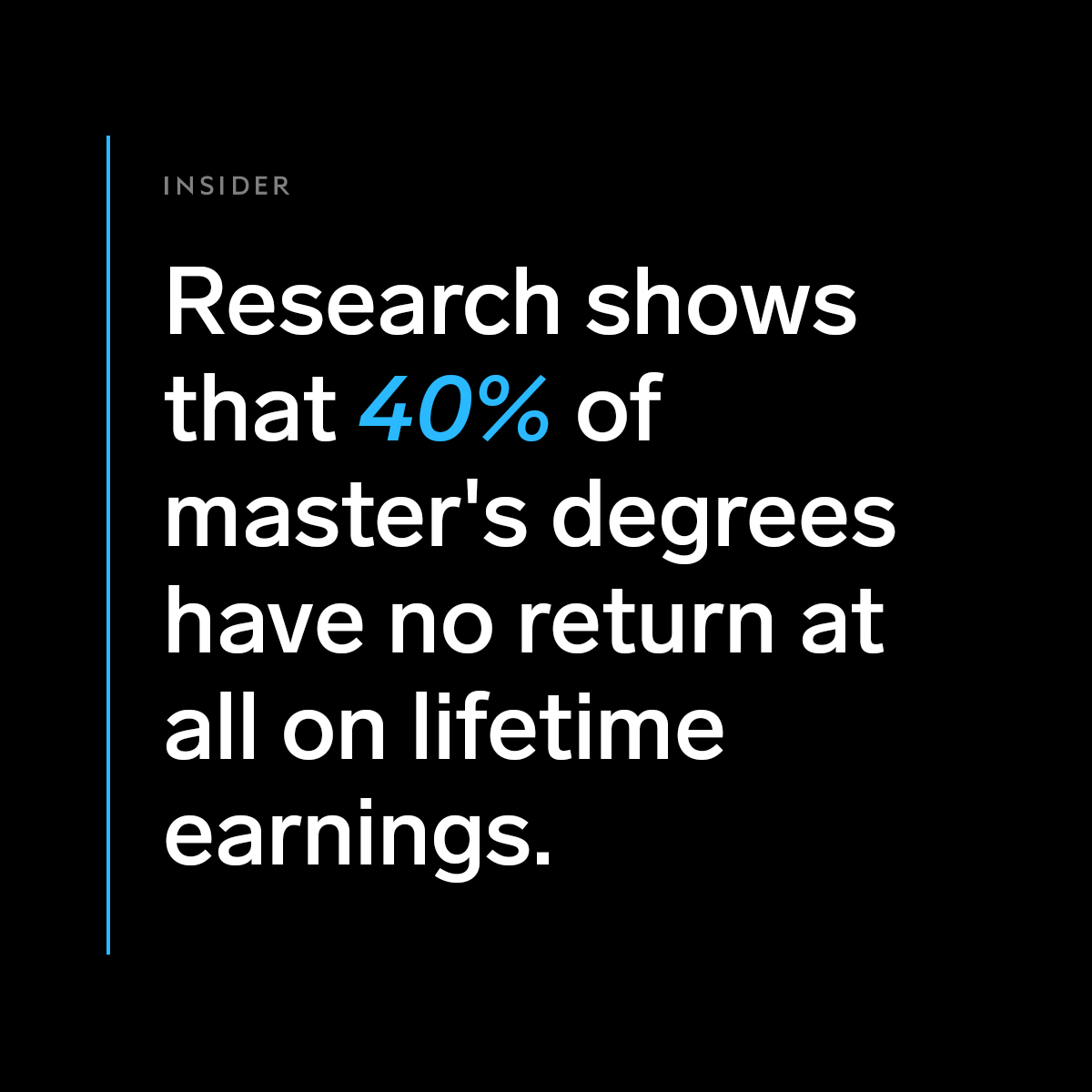
The financial picture is even bleaker than these numbers suggest.
The researchers didn’t even include student loan debt in the calculations, because the higher price of master’s degrees would have skewed the data.
businessinsider.com/masters-degree…
The researchers didn’t even include student loan debt in the calculations, because the higher price of master’s degrees would have skewed the data.
businessinsider.com/masters-degree…
But debt plays a huge role in determining the financial value of a degree, because it delays the accumulation of wealth.
businessinsider.com/masters-degree…
businessinsider.com/masters-degree…

Why should we care? If students want to get a degree that will leave them deep in debt, who's to stop them?
But there’s more going on here than benevolent institutions of higher education offering the virtue of erudition to students.
businessinsider.com/masters-degree…
But there’s more going on here than benevolent institutions of higher education offering the virtue of erudition to students.
businessinsider.com/masters-degree…
And there simply isn’t much information available to students who want to weigh the cost-benefit analysis of an advanced degree — in part because schools know that the data doesn’t serve their interests.
businessinsider.com/masters-degree…
businessinsider.com/masters-degree…
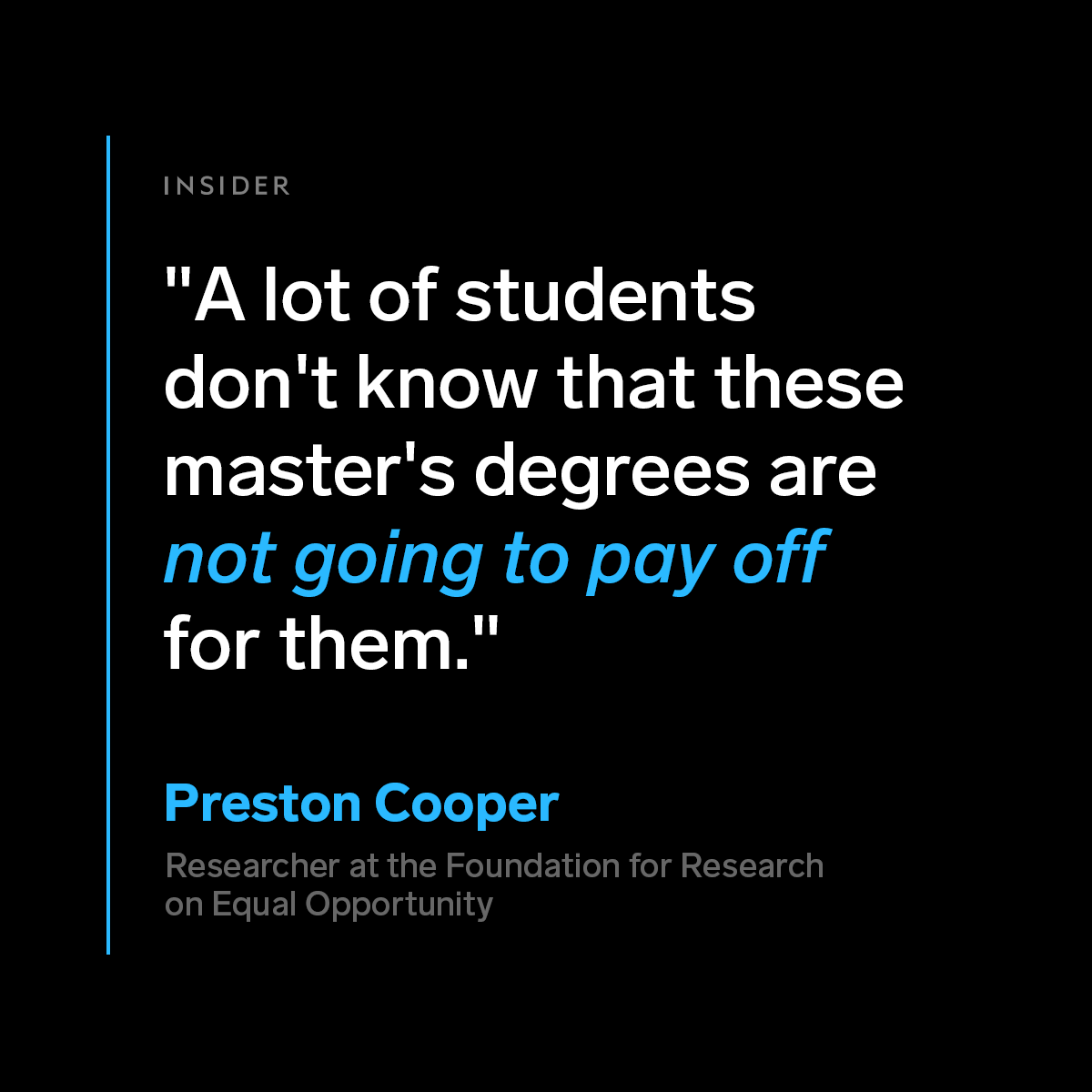
Subscribe to @thisisinsider to read more from @James_S_Murphy about:
🔵 The “master’s degree industrial complex”
🔵 Why this problem hits women and people of color the hardest
🔵 The federal government’s role
businessinsider.com/masters-degree…
🔵 The “master’s degree industrial complex”
🔵 Why this problem hits women and people of color the hardest
🔵 The federal government’s role
businessinsider.com/masters-degree…
• • •
Missing some Tweet in this thread? You can try to
force a refresh

